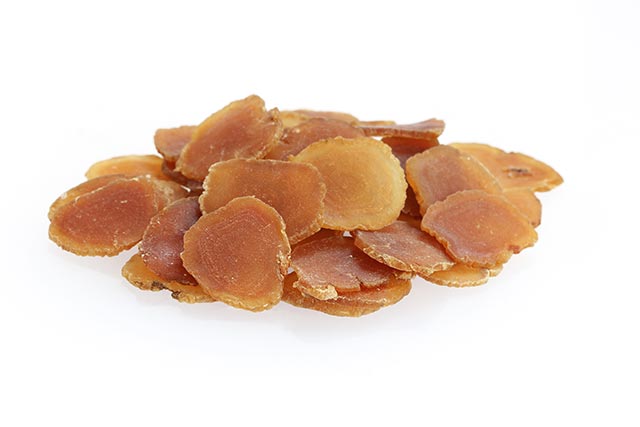Study suggests using Korean red ginseng to naturally remedy chronic hepatitis B
12/19/2018 / By Michelle Simmons

Conventional antiviral treatments, which aim to reduce viral replication, for chronic hepatitis B cause many side effects and resistance, so researchers continue to find safer and more effective alternatives. Since ginseng has been previously reported to be effective for treating viral infections such as influenza and human immunodeficiency virus, researchers from The Catholic University of Korea in South Korea aimed to determine whether red ginseng would be effective in treating chronic hepatitis B. They found that Korean red ginseng is an effective complementary therapy for chronic hepatitis B, as it reduced non-invasive fibrosis serum markers, including hyaluronic acid transforming growth factor-beta.
Hepatitis B is a potentially life-threatening viral infection caused by the hepatitis B virus (HBV) that attacks the liver. It can cause both acute and chronic disease and increases the risk of death from cirrhosis and liver cancer. The World Health Organization (WHO) estimates that 257 million people are living with the disease.
For their study, which was published in The Journal of Alternative and Complementary Medicine, they looked at the effects of ginseng in combination with antiviral agents on chronic hepatitis B. To do this, they enrolled 38 participants with chronic hepatitis B, and then divided them into two groups: a control group and a treatment group. Participants in the control group only received antiviral agents, while those in the treatment group received Korean red ginseng powder capsules in combination with antiviral agents.
The results of the study showed that chronic hepatitis B patients who received Korean red ginseng powder capsules, in addition to antiviral agents, experienced further reductions in non-invasive fibrosis serologic markers, such as hyaluronic acid transforming growth factor-beta.

With these findings, the researchers concluded that Korean red ginseng could possibly be used as a complementary therapy for chronic hepatitis B. (Related: Both American and Asian ginseng are effective at treating fatigue in people with chronic illness.)
Avoiding liver damage from hepatitis
People with hepatitis are prone to liver damage, so they need to follow a healthy lifestyle to minimize damage to the liver. The liver needs to be healthy in order to convert food into energy properly. One way to do this is to follow a healthy, well-balanced diet. The diet should include the following:
- Healthy fats, which can be found in nuts, avocados, and olive oil
- Lean protein such as fish, skinless chicken, egg whites, and beans
- Low-fat or non-fat organic dairy products
- Plenty of fruits and vegetables
- Whole grains such as oats, brown rice, barley, and quinoa
The following foods should also be avoided:
- Alcohol
- Foods with too much salt
- Saturated fats, which can be found in butter, sour cream, and other high-fat dairy foods, fatty cuts of meat, and fried foods
- Sugary foods such as cookies, cake, soda, and packaged baked goods
An unhealthy diet can promote liver damage. Eating too much high-calorie greasy, fatty, or sugary foods can lead to weight gain and fat will start to build up in the liver. A fatty liver can promote the development of cirrhosis, or scarring, of the liver.
People with hepatitis should also take extra precautions to prevent any disease that would increase the risk of liver damage. Washing all meats, fruits, and vegetables first before preparing or consuming will help remove any potentially harmful residues, and washing the hands thoroughly before and after handling food will help prevent cross-contamination.
Taking B vitamin supplements will help spur the healing of the liver, while taking supplements such as vitamins A, B3, C, and D and iron may cause liver damage. Taking herbal remedies, particularly milk thistle, may also help. Milk thistle may have some restorative properties that can improve liver function in hepatitis and cirrhosis patients. However, it’s best to consult first a medical professional before taking any supplement or herb.
Read more news stories and studies on natural remedies for chronic hepatitis B by going to AlternativeMedicine.news.
Sources include:
Submit a correction >>
Tagged Under:
alternative medicine, ginseng, hepatitis B, herbal medicine, Herbs, Korean red ginseng, medicinal plants, natural cures, natural medicine, remedies
This article may contain statements that reflect the opinion of the author





















